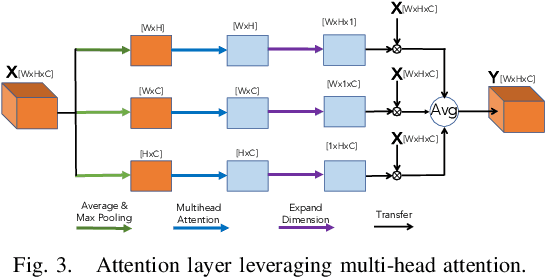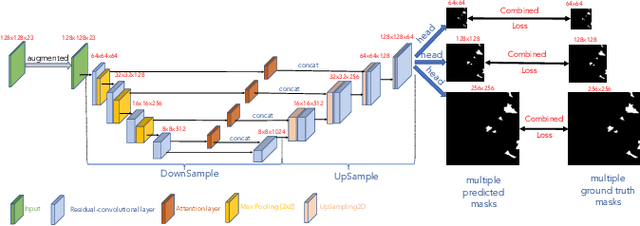Landslide Detection and Segmentation Using Remote Sensing Images and Deep Neural Network
Paper and Code
Dec 27, 2023



Knowledge about historic landslide event occurrence is important for supporting disaster risk reduction strategies. Building upon findings from 2022 Landslide4Sense Competition, we propose a deep neural network based system for landslide detection and segmentation from multisource remote sensing image input. We use a U-Net trained with Cross Entropy loss as baseline model. We then improve the U-Net baseline model by leveraging a wide range of deep learning techniques. In particular, we conduct feature engineering by generating new band data from the original bands, which helps to enhance the quality of remote sensing image input. Regarding the network architecture, we replace traditional convolutional layers in the U-Net baseline by a residual-convolutional layer. We also propose an attention layer which leverages the multi-head attention scheme. Additionally, we generate multiple output masks with three different resolutions, which creates an ensemble of three outputs in the inference process to enhance the performance. Finally, we propose a combined loss function which leverages Focal loss and IoU loss to train the network. Our experiments on the development set of the Landslide4Sense challenge achieve an F1 score and an mIoU score of 84.07 and 76.07, respectively. Our best model setup outperforms the challenge baseline and the proposed U-Net baseline, improving the F1 score/mIoU score by 6.8/7.4 and 10.5/8.8, respectively.
 Add to Chrome
Add to Chrome Add to Firefox
Add to Firefox Add to Edge
Add to Edge